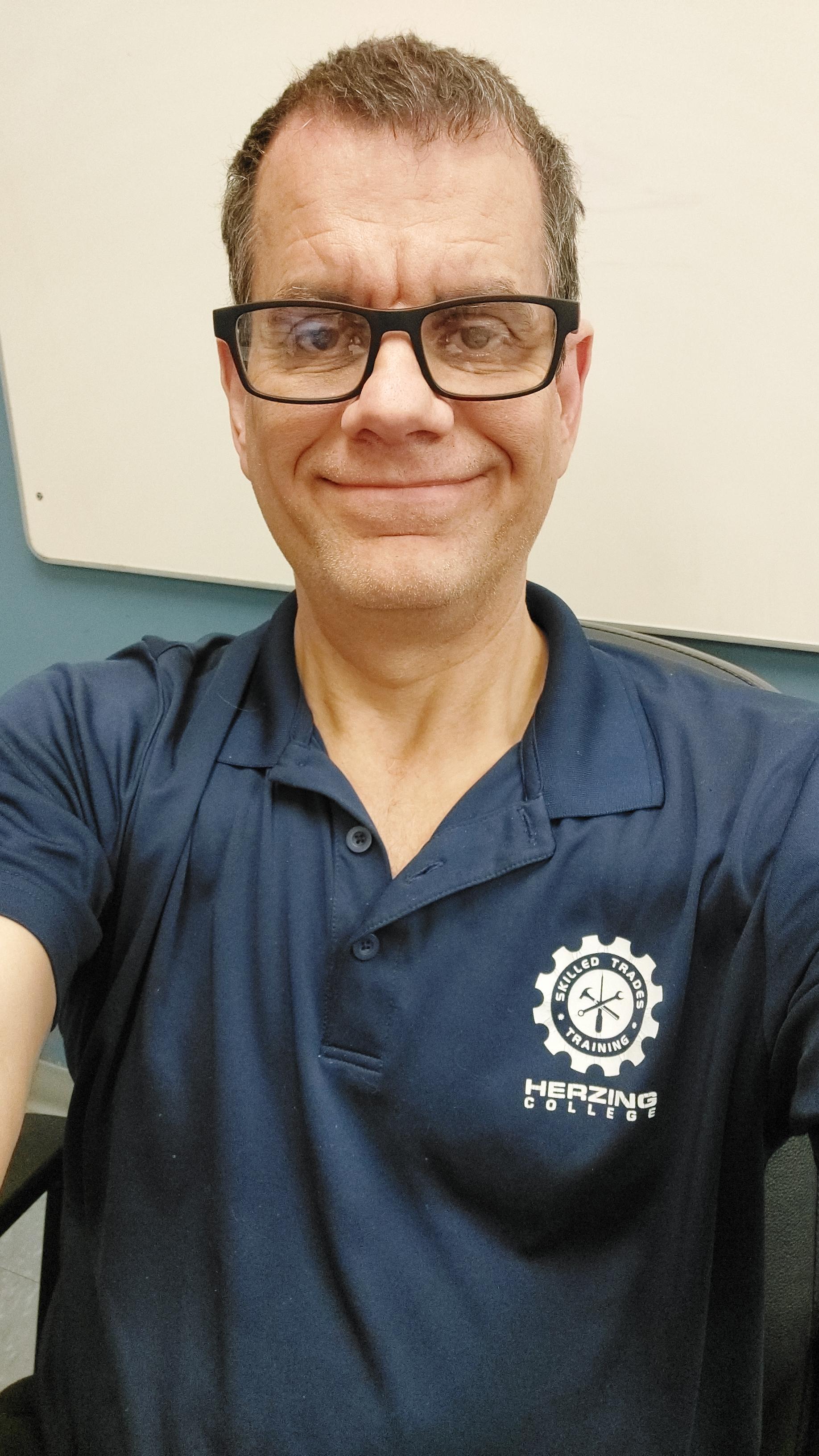Don DeLuca never expected to become a college instructor.
He’d always been a natural salesman, and when his computer sales job disappeared he switched to selling network cabling. His boss told him that in order to sell something, you have to know how to do it—so he learned how to be a cabler. He got so good at it that he eventually started his own business, DeLuca Cabling.
He came to Herzing looking for apprentices and ended up becoming a full-time instructor. And recently, he was recognized as our Instructor of the Year!
We caught up with Don this week to learn more about his remarkable story.
Q. Don, could you share a bit about your background? How did you get into the network cabling field?
Don: I started network cabling in 1995. I’d been selling computers, and when Windows 95 came out the hardware market just went through the floor. So all kinds of people lost their jobs, including me.
The company I was working for had a cabling company that they used to sell their computers to, and that cabling company needed a sales guy, so I took the job. That’s where I really started. I learned the cabling industry and did quite well doing that.
Then in about 2001, fiber optics really started taking off. I was sent for fiber optic training and became a fiber optic specialist for the company. And in 2008, I opened my own business doing data cabling and fiber optics.
Q. How did you come to be teaching at Herzing?
Don: I actually came to Herzing looking for apprentices. The dean asked if I could come in and demonstrate fiber optics because they were teaching fiber optics from a book, but they didn’t have anybody actually demonstrating it.
So I came in for just a few days here and there to demonstrate. And then the Herzing education director took me aside and said you know, the students really get what you’re saying and you can get through to them very easily. Would you want to teach a whole course?
At first I said, well, I’m not a teacher. I didn’t go to teacher’s college or anything. Then the director suggested I just think of the whole class as my apprentices. And I realized I could totally do that.
Q. What’s your favourite part of the job?
Don: My favourite part of the job is when I see the light bulb go on in the students. They start playing with phones and calling each other and it actually works. Then they’ll go home and start ripping the phone jacks apart and rewiring them and figuring out that they can actually do data cabling at home.
It’s gratifying to know that they’re improving their lives and the lives of their families with the knowledge that I’m giving them.
Q. How has the network cabling field changed over the course of your career?
Don: The biggest change was around 2005 when the residential market changed from the old style of wiring to data cabling. At that time, pretty well all new residences in North America switched from the old four-wire phones to Ethernet cables. That was a major, major change.
Even though most jacks are still phone jacks, they have data cables in behind them.
At about the midpoint of the course, I regularly have students say you know what? The wi-fi is not really good in my apartment and I want to run data cable. I tell them if their place was built after 2005, they probably have data cable and they can just take the phone jack off and put a data jack on. And they go home and do that and it works fine.
Q. What backgrounds do your students typically come from? Would they have any cabling experience?
Don: The students that are in the 24-week program come from Better Jobs Ontario, from high school, and from all walks of life. They’re usually pretty green, with no structured cabling experience at all.
Q. What are you most proud of accomplishing so far in your career?
Don: I would say teaching. I have a varied history in all the different facets and environments for data cabling, but it’s always the same: me doing something good for a customer. Whereas now that I’m teaching, my work is actually affecting many, many, many different environments at once.
So instead of me doing a day's work and only getting a day's productivity out of it, now I'm sending students out by the hundreds and they're all using my information to further the whole data cabling field. I'm sending people out that are using my knowledge to do good work.
Q. What does receiving this award mean to you?
Don: It’s a very good feeling. I appreciate the recognition that I’m doing more than just teaching from a book, and that my knowledge and experience are valued.
Q. What advice would you give someone who was thinking about taking the network cabling course?
Don: If they have an interest in how communications work, even to the point of playing a game online and thinking about how that game is actually being played, they should definitely consider this training.
They should also come with an open mind and be ready to learn because there is a lot of information. I often tell my students that I’m going to ask them to put a finger in their ear and turn their head sideways, because I’m going to melt their brain and I don’t want it slipping out of their ear.
LEARN MORE ABOUT HERZING’S NETWORK CABLING TRAINING
The Network Cabling Technician program at Herzing College is designed to get you job-ready in only 24 weeks. Training is available in Toronto and Cambridge.
Still have questions? An admissions advisor can walk you through course schedules, costs, how to apply, and more.
Click below to get full program details and chat live with an advisor. We’re here to help!






